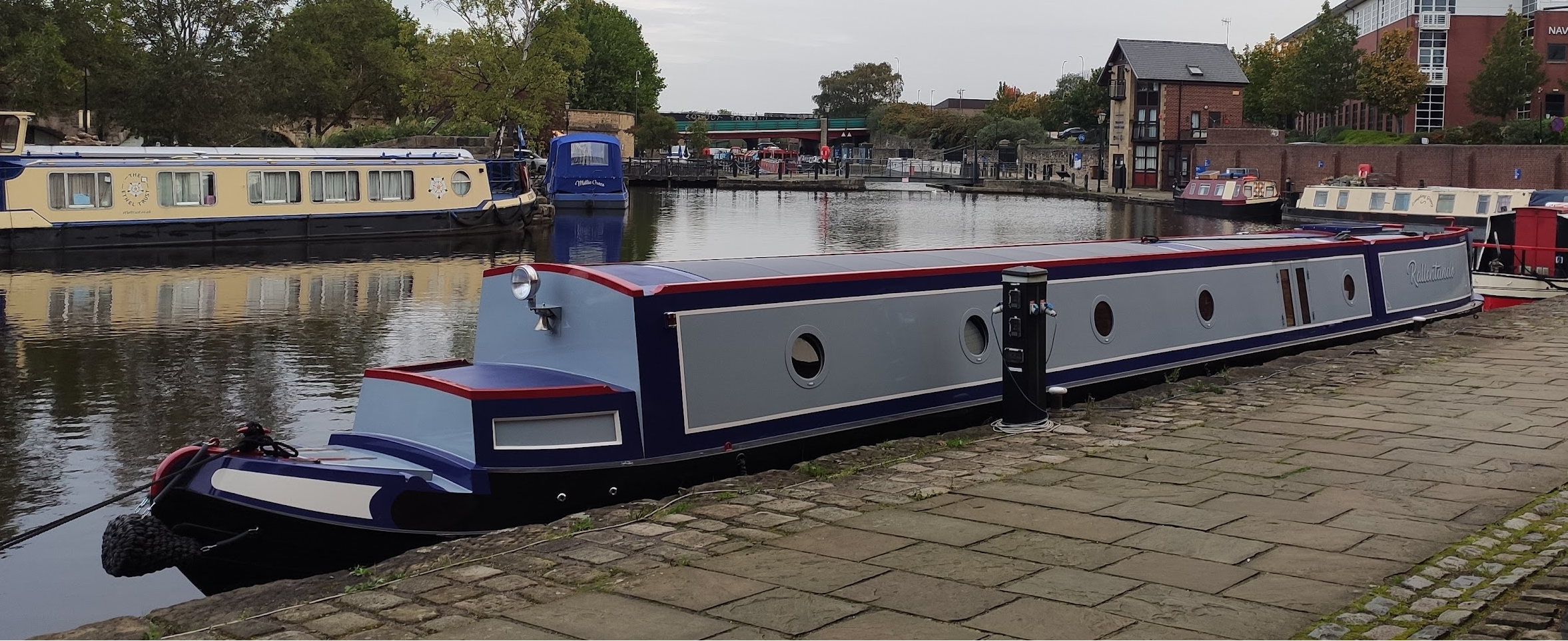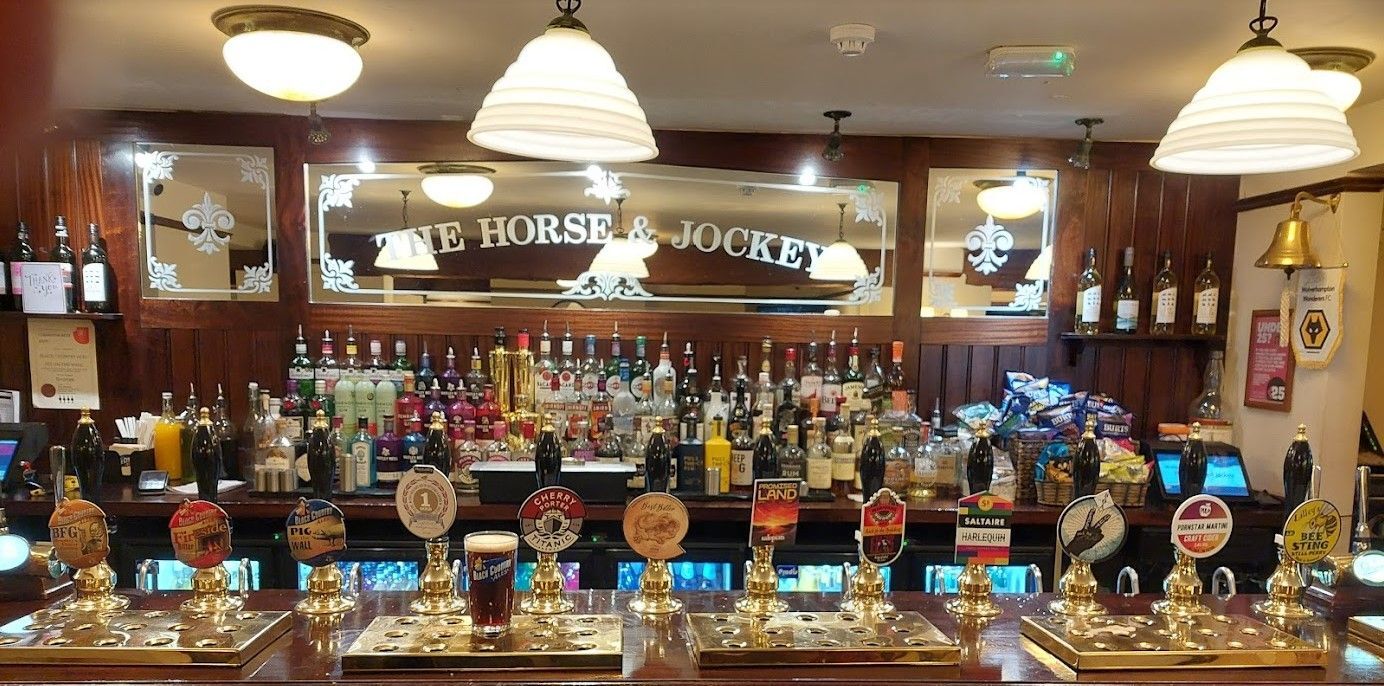-
Posts
15,909 -
Joined
-
Last visited
-
Days Won
117
Content Type
Profiles
Forums
Events
Gallery
Blogs
Store
Everything posted by IanD
-
Where on earth was that?
-
That might be a problem, as I said -- but which is worse for boats that want to move, finding prime visitor moorings full (a bit annoying?) or being unable to move at all because of no water (complete disaster)? It's a case of choosing the least bad solution, the only good solution (more water!) is out of our hands... 😞
-

Are these reliable? Two-way grey water manifold.
IanD replied to Baralacha's topic in Boat Building & Maintenance
IIRC the ISO/BSS/RCR/whatever rules also specifically say that the "above waterline height" freeboard requirement (250mm?) does *not* apply to things like sink drains, so long as these are done in such a way that failure of one part doesn't cause a leak -- so no fragile hull fittings that can be knocked off (welded steel is fine) and any piping properly secured (e.g. double SS clamps). The fact that some surveyors and BSS examiners -- and boatbuilders! -- seem to be unaware of this says a lot for the level of education about what the standards actually say... 😞 -

Are these reliable? Two-way grey water manifold.
IanD replied to Baralacha's topic in Boat Building & Maintenance
I don't understand why you're adding a pump to the sink to enable you to have a hull outlet that high above the waterline. So long as the drain from the sink is done securely (e.g. double stainless-steel clamps) it doesn't have to be far above the waterline (e.g. the 250mm that is often quoted) -- or indeed above it at all, though there shouldn't be any need for this even with a deep sink. That's from all points of view, BSS and common-sense... 😉 -
Lots of posts seem to be missing the point that was being made -- it's not whether people have a need/want to stay in one place for more than 14 days, the question was whether if this was temporarily extended some boaters (who don't feel the need to move, but have to under the 14 day rule) would choose to stay in one place for longer instead of moving through locks, and therefore save precious water for those who do want/need to move. Yes it's possible that this would be seen as encouraging CMers who don't want to move, but in return the canals would have more water for CCers/hire boats who want/need to move, and be less likely to close due to water shortages. Look at it the other way round -- if this isn't done and canals have more/earlier restrictions/closures as a result, are the moving boats going to say "Well I can't go anywhere, but at least we stopped those pesky CMers squatting for longer!" ? Sound like cutting off your nose to spite your face to me... 😉
-
Which is exactly the point that needs to keep on being made when people keep spreading FUD about lithium batteries being a fire risk (which is true for NCO/NMC etc!) while failing to realise that this is simply not true for LFP batteries, which if anything are safer than the LA batteries that everyone has been happy with for many years. What also needs doing is educating insurers and standards bodies (including BSS) because it seems the same misunderstanding/failure to understand the difference also happens there. They can understand the big difference between diesel and petrol as far as safety is concerned, why can't they do the same for LFP and non-LFP lithium batteries?
-
Also slit or clit... 😉
-
Or you're dealing with a dyslexic one... 😉
-
The percentage of responders who were CCers (27%) isn't massively different to the percentage of license-holders who are CCers (about 20%?), but it's certainly possible there was some NBTA "vote-stacking" going on to push their views forwards. But that's no different to what they do to get press attention out of all proportion with their numbers and support, is it? It's why poll response weighting is actually a good idea... 😉 “An empty vessel makes the loudest sound, so they that have the least wit are the greatest babblers.” ― Plato
-
Ah, I see the problem. However there would presumably be nothing stopping CART making the extension region-specific i.e. only in areas/canals with water shortages... 😉 (the NBTA would have difficulty claiming "discrimination" since "the circumstances" wouldn't apply to London -- though I expect that wouldn't stop them trying...)
-
This argument is all getting a bit cilly... 😉
-
Seems like a good idea, in this specific situation, for the reasons you say. Though whether this ends up happening more regularly in future due to water shortages due to climate change is something to think about, because it could then end up changing the law de facto without legally changing the law, which is bound to cause legal problems... 😉
-
Or you could always take your tinfoil hat off... 😉 They said how many responses were received and then showed how these broke down; unless this is an out-and-out lie I assume they wouldn't have fiddled the results. And why should they, they've got nothing to gain by it? If they wanted to fiddle the results to get the answers "they" wanted, there are far better ways to do that -- such as using weighting and then bending the results, which they didn't do... More to the point, this isn't CART -- what answers do you think "they" would want? "They" don't have any axe to grind -- unlike, it seems, like some posters on CWDF... 😉
-
Agreed -- but the fact that it only allows full-speed BT screaming would put me off too... I might think differently if I was a solo boater (and also had a remote control throttle) but there have always been at least two of us on board, so a remote is much less useful.
-
Sorry but the numbers simply don't say that -- for example: Issues facing continuous cruisers 3.19 Of the respondents who identified the licence model as an issue, 494 (24%) identified specific issues facing continuous cruisers as a result of the current licensing framework. Specific concerns for continuous cruisers related to affordability resulting from increases in costs for this type of licence. Additional charges for those without a home mooring has led to a perception of discrimination against continuous cruisers. Licence status 2,957 (63%) of respondents are leisure licence holders with a home mooring, and a further 1,245 (27%) are leisure licence holders without a home mooring. So 27% of respondents are CCers, and 24% of respondents identified specific licensing issues for CCers. Now without any direct data about correlation between the two categories it's impossible to be certain, but most people would draw the obvious conclusion that those 24% concerned about CCer licensing issues came almost entirely from the 27% of CCers who responded and not the 63% of HMers. Which directly contradicts your statement, doesn't it? This shouldn't come as any surprise because it confirms what the CART boater survey showed -- most boaters are narrowboat HMers, and agree with widebeam owners and CCers (both in the minority, even more so in reality then the commission survey) being charged more for licenses, and think that many CCers abuse their license terms -- in other words, CMers. Again not surprising, everyone wants to look over their own interests -- but this is exactly opposite to saying that most boaters support CCers in general and CMers in particular, which is the group who many of the complaints are about in both surveys... 😉
-
You mean this one? https://www.vetus-shop.com/vetus-canvwrc-wireless-control-package-p-3759.html I know Vetus kit is expensive, but £400 for a remote control that doesn't even allow proportional control of the Bow Pro (full L/R only) seems extortionate... 😞 (I very often use lower BT thrust for longer for the same reason as with the propeller -- quieter, less of the "mad screaming BT" syndrome...)
-
Indeed, and that's one of the negative points of the newer proportional BT like the Vetus Bow Pro. DAMHIK... 😞 That's apart from what seems to be unreliability of the joystick controller, I'm waiting for yet *another* replacement (under guarantee). Not a happy bunny... 😞
-
I would disagree with that. It looks like the responses from boaters without a home mooring are supportive of boats without a home mooring, which should come as no surprise to anyone, it's exactly what the last CART "Boater's survey" showed...
-
One little proviso from the beginning, before people start saying "This shows what boaters think!!!".... "In total, 4,678 responses were received from a cross-section of stakeholder groups. There are discernible prevailing trends in opinion from this set of responses. It is important to note, however, that the survey was not weighted, and therefore the results may not be representative of the broader population of waterway users." Any reputable poll/survey trying to find out "what people think" uses such weighting to get a representative sample -- for example, here that might include weighting the results to match the real number of liveaboards vs. "holiday boaters", or HMers vs. CCers, or newcomers vs. long-term boaters. Apart from anything else, a self-selecting/self-engaging survey is likely to give too much weight to the views of a vocal minority (e.g. NBTA members/supporters, CCers) and too little to the views of the "silent majority" (e.g. HMers and marina dwellers). For example: "The drivers for this sense of unfairness appear to focus on affordability and value for money of licences, and the arrangements for different users of the waterways. There was an overall sense that the licensing model lacks the nuance necessary to accommodate all user types. Continuous cruisers and users of wide beam boats aired particular frustrations." Could that be the frustration of being asked to pay more, and possibly even more in future? "Other ideas included reducing licence fees by half or returning to a flat rate for the licence fee, with some suggesting that all boaters should pay the same licence fee regardless of their mooring status." Anyone thinking halving license fees by half is sensible given CARTs financial position needs their head examined. I think we can all guess where the other ideas come from... 😉 However the report does show how many boaters are frustrated by the lack of enforcement of possibly unclear rules -- which again should come as no surprise... 😞 "4.6 There is considerable frustration for those boaters who see themselves as adhering to the rules and paying their fees, and yet struggling to find mooring spaces because (in their view) the system is being abused by those who do not comply." "4.11 The feelings elicited by this issue bear similarities with those prompted by overstayers – frustrations with the lack of enforcement and penalties, and a sense of unfairness and frustration among those who adhere to the regulations, as they see others benefiting from the waterways without contributing to their upkeep. Boaters who pay their licence fees feel they are bearing the financial burden of other non-compliant boaters. The perceived proliferation of unlicensed boats undermines the integrity of the licensing system in their eyes, and the sustainability of the waterways." "4.16 Overall there was a sense among respondents that the Trust fails to enforce its own rules consistently, leading to a disparity between those who follow regulations and those who do not, and a sense of ‘chaos’ on the waterways" And then the points that I'm sure everyone is aware of... 😞 Maintenance and facilities 5.6 Of the respondents who raised the subject of operational management of the waterways by the Trust, 2,860 (69%) felt that maintenance of the network and boater facilities was a key issue. Maintenance was the most frequently mentioned issue across all survey responses, with 61% of all respondents sharing frustrations in this area. 5.13 There is a strong sense among respondents that maintenance of the canals and Trust- owned moorings is a core responsibility for the Trust, should always be the organisation’s top priority, and that income generated from licences should be used primarily for that purpose. Senior staff salaries and signage were cited by some respondents as examples of expenditure which should be of a lower priority. Perceptions of the Trust 6.2 Respondents expressed concerns about the Trust’s governance, culture, accountability and transparency, and its understanding of the core stakeholder community. Comments suggest a strained relationship between the Trust and boaters, particularly continuous cruisers, as a result of the Trust’s communication style, which is perceived as heavy handed and accusatory. There is also a feeling that the organisation does not advocate sufficiently for boaters’ needs. The portrait that these comments conjure is of an organisation that may lack understanding of the boating community’s needs and priorities. Some respondents suggested that this was a result of the removal of specific boating officers allocated to nominated canals or regions and their replacement with a centralised bureaucracy that makes it difficult for boaters to raise issues directly. Management of funding and investment 6.8 Many respondents believe that the Trust’s funding environment is challenging because of long-term underinvestment in the waterways and insufficient government funding. They acknowledge that these issues are a root cause of many of the concerns across the network highlighted elsewhere in the report. The housing crisis 6.11 Many respondents have raised questions and concerns relating to the housing crisis. These issues are relatively polarised between: • people who believe it is not appropriate for the waterways to be used as a cheaper alternative to traditional housing; and • those who believe the Trust should be doing more to support the increasing number of people living on the waterways. 6.12 The increase in residential use of the waterways appears to have contributed to many of the issues around overstaying, congestion and general boater etiquette highlighted through this report. It also gives rise to a number of strategic questions including: • how the Trust balances the interests of residential and leisure boaters • what the Trust’s additional responsibilities to residential boaters are or should be • how the Trust works in partnership with local authorities and other agencies on the specific issues facing residential boaters. 6.13 It is clear that the Trust’s charitable objects are in no way related to providing housing to people in need and yet the consequences of the housing crisis pull the Trust into a difficult and thorny space more akin to a social housing landlord than an organisation looking to manage inland waterways for public benefit
-
-
FUD is using either misinformation or selective quoting to induce negative views of something -- for example selecting the tiny number of (often discredited) articles which claim that climate change is not anthropogenic, or suggesting that LFP batteries are dangerous "because lithium batteries catch fire and are impossible to put out". Not all "professional websites" are truly impartial. The CPD website uses data from Greenectra, whose business is providing courses about "lithium-ion" batteries with a focus on safety precautions -- meaning, mainly for the most popular/dangerous chemistries like NMC, like this (because LFPs don't really suffer from thermal runaway etc, see below): "BattXcel Secure: A dedicated course addressing safety-critical aspects of Li-ion batteries. Learn about thermal runaway prevention, hazard identification, risk assessment, risk management in battery systems." If you were being cynical, you might think that it was in their interest to tell everyone how dangerous these batteries are, to maximise takeup of their (paid-for) courses...😉 If you look across scientific papers and the whole industry, the overwhelming opinion is that LFP batteries are many times safer than NMC and similar ones with free-oxygen chemistries -- which are the culprits in (pretty much?) all the "lithium battery fires" that are identified as a safety hazard, rightfully so for NMC but not for LFP. And when comparisons have been made the conclusion is usually that LFP are safer than LA, so there's no real justification for saying "We should stick with LA because it's safer". More familiar, yes, Safer, no. What is really needed is proper education about this, for both insurance companies and CWDF posters... 🙂 https://pv-magazine-usa.com/2023/09/26/not-all-lithium-ion-batteries-are-dangerous/








